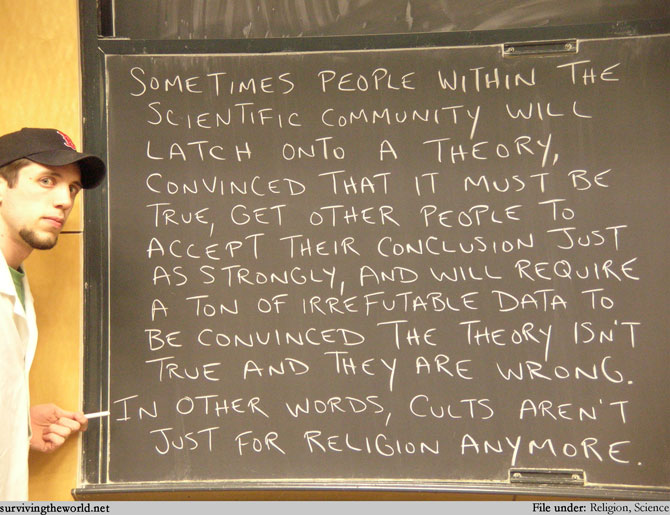I’m not really a fan of signs outside churches. Mostly because nobody is, and they’re never quite as clever as the person writing them thinks they are. But seriously. If you’re going to have one you need to make it original.
“God answers knee-mail” wasn’t funny fifteen years ago when email was relatively new. A pun on Email? Do you seriously think that posting this outside your church in 2010 is going to inspire a chuckle? Has anybody ever “found themselves in church” as a result of a dud sign? The Holy Spirit works wonders – but do we really want to put obstacles in his way by writing puns that aren’t clever or clear?
You get style points for trying something relevant to current events or technologies. You actually lose points, as in your sign has a negative effect, if it’s hackneyed, unoriginal, or stuck in the previous decade.
And don’t try to be too clever. Obtuse puns don’t work on a public sign. Especially if they can be interpreted two ways. And especially if a plain reading of the sign says something wrong or heretical.
“God is nowhere… read that again” still reads “God is nowhere.” People are driving past these signs at speed – and you’re putting “God is nowhere” on a sign. Dumb.
Those two signs were on the same church – one I drive past regularly – in the last two weeks.
But even worse are those churches that pull verses out of context to provide trite moralisms or ridiculous promises – like Jesus wants you to live your best life now… you can’t explain how that can possibly be the case (Biblically) on a sign.
I have never seen a sign promising suffering. They just inflict it on Christians who have any idea about marketing.









